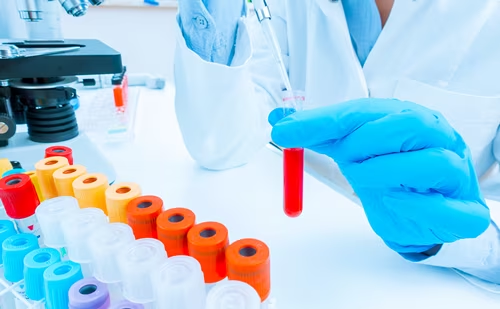European Parliament Announces a Written Declaration on Diabetes
The resounding support from the European Parliament to act against the growing diabetes epidemic culminated in the adoption of a Written Declaration on Diabetes. The declaration received a clear majority with 423 MEPs signing their support in April of this year. This rarely-seen level of support emphasises the Europe-wide consensus that action should be taken against this growing epidemic.
European Parliament Announces a Written Declaration on Diabetes
The resounding support from the European Parliament to act against the growing diabetes epidemic culminated in the adoption of a Written Declaration on Diabetes. The declaration received a clear majority with 423 MEPs signing their support in April of this year. This rarely-seen level of support emphasises the Europe-wide consensus that action should be taken against this growing epidemic.
The Declaration calls on the Commission and Council to develop an EU diabetes strategy on the basis of an EU Council Recommendation on diabetes prevention, diagnosis and control and further urges the Commission and Council to prioritise diabetes in EU health policy, and to encourage Member States to develop national diabetes plans.
The Declaration followed a major, new audit of diabetes policies across all 25 EU Member States, performed and presented earlier in the year by the International Diabetes Federation European Region (IDF Europe) and the Federation of European Nurses in Diabetes (FEND). The audit provided data to highlight the magnitude of the diabetes epidemic, the very apparent inequalities in diabetes policies across Europe and the need for urgent action.
Following news of the Declaration, Dr Michael Hall, Board Member of IDF Europe, said, “It is a measure of the seriousness of the diabetes epidemic in Europe for this Declaration to have been adopted by such a convincing majority in the Parliament. We now need immediate and decisive action in the form of an EU strategy to address the growing diabetes problem.”
Anne-Marie Felton, Chairman of FEND also welcomed the news, stating, “It is significant that the European Parliament has spoken with such clarity and sensitivity, in concordance with people with diabetes, their healthcare professionals and EU citizens across Europe, as to the urgent need for constructive action.”
John Bowis MEP, Chair of the European Parliament’s Diabetes Working Group, who tabled the declaration, along with his colleagues Georgs Andrejevs, Dorette Corbey and Karin Scheele, added, “I hope this resolution will make all European Ministers and European Commissioners understand the seriousness of the epidemic.”
www.fend.org
The IDF calls on the United Nations to help tackle the diabetes epidemic
Diabetes has become an international crisis, with the number of sufferers reaching epidemic level and expected to rocket to beyond 334 million.
This crisis has prompted the International Diabetes Federation (IDF) to initiate an effort to develop and promote a UN resolution on diabetes. They have gathered leaders in the areas of diabetes care, advocacy and industry, including the World Health Organization (WHO), American Diabetes Association, Juvenile Diabetes Research Foundation, Rotary International and Lions Club International, to co-operate on the resolution. Most importantly, the emphasis lies in establishing a strong unity in the fight against this pandemic.
The two tactics that the IDF believes are required to make an impact on the diabetes crisis worldwide are: to create a UN resolution acknowledging diabetes as a serious problem; and to develop an extensive public relations campaign highlighting the need for action. The project is huge in scope and will be on-going for several years.
IDF president-elect Martin Silink says, “The aim is to run the largest global awareness campaign ever held for diabetes with the goal of reaching one billion people.”
The resolution is a declaration only and does not include any financial support for the cause. The IDF hopes that by voting for this resolution, countries within the UN will be motivated to become involved in other efforts to affect the condition. Some possibilities might be sponsorship programs for diabetic children or nationwide prevention and education efforts.
Statistics show that in spite of efforts to date, diabetes is still out of control, under-funded and under-recognised. The projected increases in the number of diabetics will outstrip the ability of health systems to cope and will jeopardise the health of millions.
The IDF hopes that a resolution would increase global awareness of diabetes and recognition of the humanitarian, social and economic burden of diabetes and promote strategies for the prevention of diabetes complications and public health strategies for the prevention of diabetes.
The project is an exciting venture that aims to provide this cause with a great deal of recognition and attention. The IDF hopes the resolution will be officially recognised on World Diabetes Day, 14 November 2007.
www.unitefordiabetes.org
Growth hormone (GH) replacement therapy shows improved quality of life
A recent study performed by Bernhaard Saller and colleagues, looking at healthcare utilisation, quality of life and patient-reported outcomes during two years of GH replacement therapy in GH-deficient adults, compared data from three counties, Sweden, The Netherlands and Germany, to try and determine whether patient outcomes differ from country to country and in varying healthcare systems.
The beneficial effects of growth hormone (GH) replacement therapy in hypopituitary adults with GH deficiency are well established. Long-term follow-up of the outcomes of GH replacement therapy, using multinational data has confirmed that these benefits (improved quality of life (QoL) and reduced utilisation of healthcare) are also not short-lived. Saller’s study looked at whether these patterns are representative of all countries, which employ varying types of healthcare system and have diverse patient population characteristics.
Their findings confirm the patterns seen in both the multinational and single country data. QoL improves and is maintained over the course of GH replacement therapy, while the utilisation of healthcare declines. These measures changed to similar extents in all three countries. Improvement in QoL was associated with increased physical activity, patient-reported improvement in health and the reduced need for help in everyday activities. No link was found between reduced healthcare utilisation and improved QoL.
This study presents a useful comparative analysis of the trends in these measures in three distinct European populations, emphasising their reliability and providing an important reference for future socioeconomic evaluations of GH replacement in Western Europe.
www.euro-endo.org
New scientific advice procedure introduced by the European Medicines Agency
The European Medicines Agency (EMEA) has announced its ‘New Framework for Scientific Advice & Protocol Assistance’. The framework introduces significant changes to the way the EMEA provides scientific advice on the research and development of new medicines. These changes include earlier and greater systematic involvement of internal and external experts from the pre-submission phase to the final adoption of scientific advice; faster delivery of the advice to sponsors to allow finalisation within 40 to a maximum of 70 days; enlarged Scientific Advice Working Party, with 261 instead of 22 members; and a reinforced role for the EMEA secretariat in ensuring the consistency of the advice given.
The new framework will help sponsors to develop new medicines in a faster and more effective manner, which, in turn, means patients will have quicker access to innovative new medicines. There will also be the opportunity for smaller sponsors, micro, small or medium-sized enterprises (SMEs) to take advantage of a 90% fee reduction for scientific advice, in order to facilitate greater access to important information.
The ‘New Framework for Scientific Advice & Protocol Assistance’ will come into effect as of 1 July 2006. Further information regarding the changes, as well as assistance and procedural guidance will be available on the EMEA website.
www.emea.eu.int







